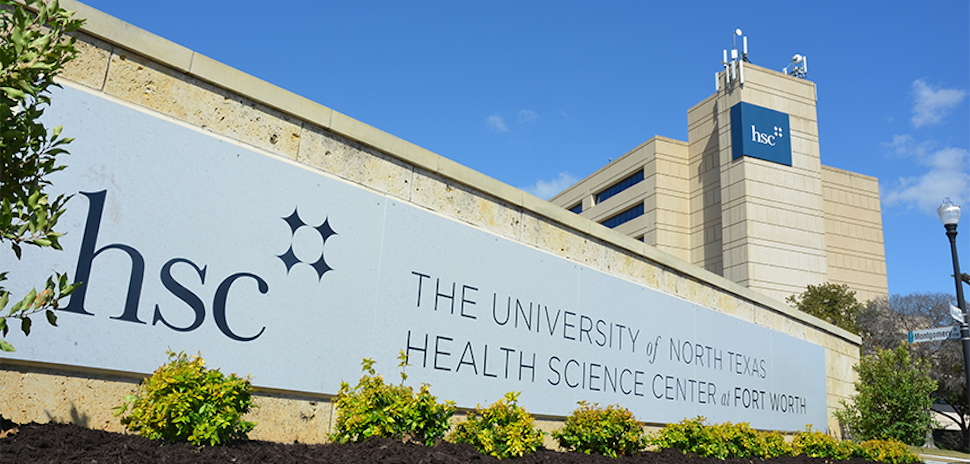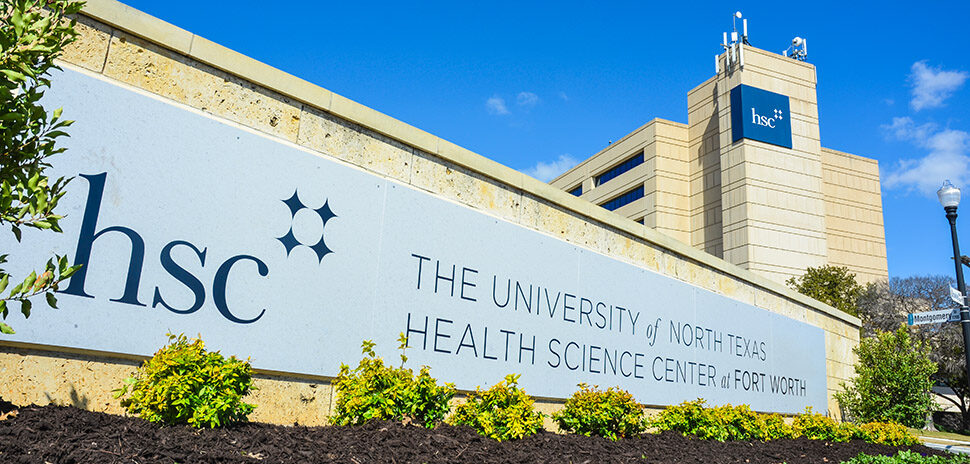STUDY: OPIOID DEATHS DROPPED AFTER MARIJUANA LEGALIZATION

Melvin D. Livingston and Tracey E. Barnett of the University of North Texas Health Science Center [Photo: UNTHSC]
The opioid crisis is one of the biggest health issues in the U.S. as officials try to stem its spread and reduce the number of people dying from it.
To that end, a team led by a researcher at the University of North Texas Health Science Center in Fort Worth looked at the number of opioid deaths in Colorado in the two years after the state legalized recreational marijuana.
The researchers analyzed Colorado data covering a 15-year period from 2000 to 2015 to compare changes in the number of opioid-related deaths before and after recreational marijuana sale and use was legalized.
They found that opioid-related deaths decreased following marijuana’s legalization in Colorado.
The team’s study, published in the American Journal of Public Health, revealed a 6 percent reduction in opioid-related deaths in the ensuing two years, reversing the previous upward trend in the state.
The team’s study revealed a 6 percent reduction in opioid-related deaths in the ensuing two years, reversing the previous upward trend in the state.
“As policy makers continue to grapple with both the growing opioid crisis and the rapidly changing landscape of marijuana laws in the U.S., scientific evidence is needed to help inform policy decisions to combat this disturbing upward trend in opioid-related deaths,” Melvin D. Livingston, assistant professor at UNTHSC and lead author of the study, said in a release.
Co-authors of the study were Tracey E. Barnett, associate professor and associate dean for academic affairs at UNTHSC’s School of Public Health; Chris Delcher, from the University of Florida; and Alex C. Wagenaar, from Emory University.
UNTHSC said that Illegal and legally prescribed opioids account for nearly 30,000 deaths a year in the U.S., and that opioid deaths since 1999 from prescription drugs, heroin, and synthetics such as fentanyl has more than doubled.
In October, President Donald Trump declared a nationwide public health emergency to help combat the opioid crisis in America.
TREATMENTS FOR AUTISM PATIENTS LACKING SPECIFIC GENE
Researchers at UT Southwestern Medical Center’s Peter O’Donnell Jr. Brain Insitute have identified a pair of treatments they say could restore brain function to autism patients who lack a gene important to maintaining connections between neurons.

Dr. Craig Powell [Photo: UT Southwestern]
Research done on mice shows that the gene — which has been linked to abnormal brain size — is necessary to regulate a protein that’s capable of inhibiting the ability of neurons to communicate.
Drugs that block the protein are able to restore brain connections lost due to the absence of the gene within hours, according to a release.
“The deletion of this gene impairs brain function in a major way, and we found a way to repair the damage. But we have more work to do before we try these treatments on people. The findings give us a clue as to what pathways are altered and where to look,” Dr. Craig Powell, director of preclinical research, director of the Erma Lowe Center for Alzheimer’s Research, and section chief of developmental brain disorders in the Department of Neurology & Neurotherapeutics, said in the release.
The researchers’ study was published in the journal Nature, and comes as efforts to improve early diagnosis of autism spectrum disorder shift focus to biological measurements instead of behavioral symptoms, according to UTSW.
Find out more about this research here.
EXXON, REG VALIDATE FERMENTATION TECHNOLOGY
A joint research program between Irving-based ExxonMobil and Renewable Energy Group shows the ability to convert sugars from a variety of non-edible biomass sources into biodiesel fuel.
The program uses Renewable Energy Group’s patented fermentation technology, the companies said in a release.
“We’re optimistic as the results indicate good potential for advancing the technology …”
Vijay Swarup
“Our first challenge during the initial research was to determine technical feasibility and potential environmental benefits,” Vijay Swarup, vice president of research and development at ExxonMobil Research and Engineering Co., said in the release. “We’re optimistic as the results indicate good potential for advancing the technology, and we look forward to continuing our work with REG Life Sciences.”
Renewable Energy Group is an Iowa-based company that provides cleaner, low carbon intensity products and services.
The companies said they confirmed the feasibility of the REG Life Sciences fermentation technology across multiple cellulose sugar compositions from various non-edible biomass sources during their initial phase of research.
They also validated that the technology is capable of achieving large reductions of full-lifecycle greenhouse gas emission versus traditional diesel fuel.
![]()
Get on the list.
Sign up to keep your eye on what’s new and next in Dallas-Fort Worth, every day.
And, you’ll be the first to get the digital edition of our new Dallas Innovates magazine:
The annual edition publishes in January





























